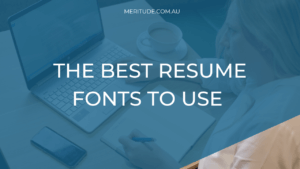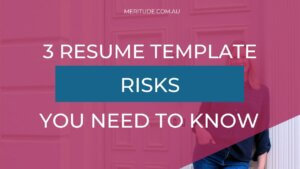Over the years, many of my clients have secured salary increases. Whilst each client’s situation is different, there are definitely some strategies that should always be a part of your interview and job search process.
So I’ve developed a post with 4 of my top tips on how you can secure a salary increase when landing your next job.
Have a clear job/title/position goal that you are suited to.
Don’t expect to make a career change and get paid the highest salary of your career. I’m not saying it’s impossible, but as a general rule, you want to play the best hand you can. To do that, start by taking stock of your personal inventory – what are your key skills, strengths, weaknesses, what do you bring to the table that would allow you to command a higher salary?
Make sure you are laser focused on positions that play to your strengths.
Next, it’s a good idea to investigate the economic strength of the industries you want to go into or remain in. Do you know which industries are the strongest and fastest-growing in your target profession?
If they are strong, find out if they are strong within your location?
Industries change constantly and you’ll find that you can command a higher salary in areas where there is a shortage of skills/experience/qualifications, or where industries are booming.
Develop a targeted, well-designed resume.
I harp on about this point all the time with clients. Your resume, cannot be all things to all jobs! So, yes you may need more than 1 resume to conduct your job search effectively.
If you are a Veterinarian and decide to apply for jobs as a Vet and a Courier Driver, you cannot use the same resume. They have different skills, attributes, knowledge and experience that need to be highlighted on the resume.
Your resume needs to be clear. You get an initial 6 seconds of air time (see my post here for more) and if you need to communicate that you have P&L responsibility within mid-size companies in a specific industry then get to the point quickly. The reader shouldn’t have to try and figure out your experience and skills, it will irritate them.
You need to be clear on titles/industry/size/scope, and also offer this information within the first 1/3 of your resume.
The longest resume to date that I’ve had to re-write was over 20 pages! Job seekers forget that their resume should contain information relevant to the position they want. Your resume is not an autobiography; it doesn’t need to detail every aspect of where you’ve been.
Good resume design will set you apart from your competition and keeps the reader engaged.
Demonstrate your value and accomplishments.
Your resume needs to include quantifiable achievements. For example, if you increased revenue by $500K in 12 months by doing XYZ. This provides talking points during the interview and demonstrates to the reader that YOU understand your value and can communicate it clearly.
In addition, it can help you leverage and even command a higher salary, particularly where you are a high achiever in your industry.
Don’t provide exact numbers regarding your salary expectations if you can.
OK, here is the deal. Whoever gives out the number first during the hiring process looses. You have to hold out as long as you can on giving a number. Ideally, wait until the company offer a number and negotiate from there.
If you can’t, and you have to give an answer then give a range, followed by asking if they have a budgeted range for the position.
Never say “Well I currently receive a $75k base plus 30% bonus based on etc., etc …” The aim is to get a higher salary, not stay on what you are currently getting.
Make sure you have conducted your research on the type position you are applying for and have a strong understanding of salary ranges within that industry.
Then, make sure to steer the conversation back to the VALUE you bring to the table.
These tips work effectively when used together during the job search. If you incorporate these along with strong marketing collateral and the right job search strategies, you should find success.Ch





